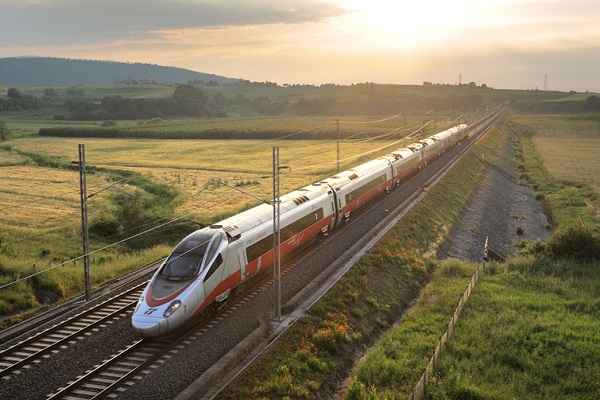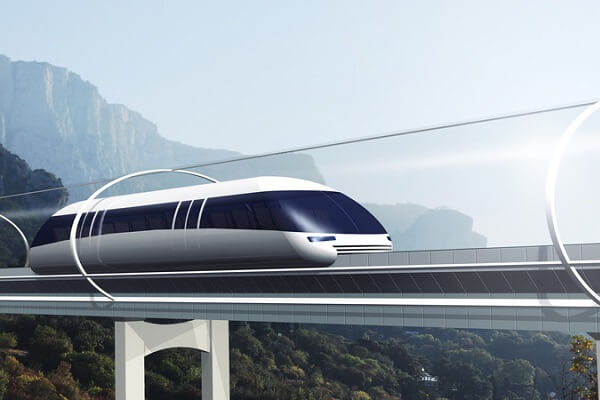 How Weigh-in-Motion Systems Are Revolutionizing Freight Safety
How Weigh-in-Motion Systems Are Revolutionizing Freight Safety Women Powering India’s Electric Mobility Revolution
Women Powering India’s Electric Mobility Revolution Rail Chamber Launched to Strengthen India’s Global Railway Leadership
Rail Chamber Launched to Strengthen India’s Global Railway Leadership Wage and Hour Enforcement Under the Massachusetts Wage Act and Connecticut Labor Standards
Wage and Hour Enforcement Under the Massachusetts Wage Act and Connecticut Labor Standards MRT‑7: Manila’s Northern Metro Lifeline on the Horizon
MRT‑7: Manila’s Northern Metro Lifeline on the Horizon Delhi unveils ambitious Urban Mobility Vision: Luxury Metro Coaches, New Tunnels and Pod Taxi
Delhi unveils ambitious Urban Mobility Vision: Luxury Metro Coaches, New Tunnels and Pod Taxi Qatar approves Saudi Rail Link Agreement, Accelerating Gulf Railway Vision 2030
Qatar approves Saudi Rail Link Agreement, Accelerating Gulf Railway Vision 2030 UP Govt plans to introduce Water Metro services in Ayodhya, Varanasi & Prayagraj
UP Govt plans to introduce Water Metro services in Ayodhya, Varanasi & Prayagraj India’s First Urban Ropeway begins Trial Run in Varanasi, Set to carry 1 Lakh passengers daily
India’s First Urban Ropeway begins Trial Run in Varanasi, Set to carry 1 Lakh passengers daily India and Bhutan to Build First-Ever Rail Link: ₹4,033 Cr Project to Boost Regional Connectivity
India and Bhutan to Build First-Ever Rail Link: ₹4,033 Cr Project to Boost Regional Connectivity
Moscow Commences Construction of Russia’s First High-Speed Rail Line
 (Representative Image)
(Representative Image)
Moscow, India (Urban Transport News): On March 14, Moscow Mayor Sergey Sobyanin, along with Vitaly Savelyev, Head of the Ministry of Transportation, and Oleg Belozerov, General Director of Russian Railways, briefed Russian President Vladimir Putin on the initiation of construction for the Moscow segment of the Moscow – St. Petersburg high-speed rail line, marking Russia's entry into the realm of high-speed rail (HSR).
This landmark project, known as VSM-1 (High-Speed Railway line-1, HSR-1), aims to link Russia's major urban centers and economic hubs, serving approximately 40.2 million residents, which accounts for 27% of the country's population.
The ambitious plan entails 16 stops along the route, with four strategically positioned within Moscow itself.
Constructing the Moscow section presents unique challenges due to the dense urban and suburban landscape. To address these complexities, several tasks have been outlined:
- Expanding tracks from Leningradsky Railway Station to Alabushevo
- Erecting six bridges and five railroad overpasses
- Completing the reconstruction of three highway overpasses
- Modernizing passenger facilities at nine stations to meet MCD standards
- Reconstructing four future high-speed rail stations in Moscow, including Leningradsky Station, Rizhskaya, Petrovsko-Razumovskaya, and Zelenograd-Kryukovo, facilitating transfers to 14 metro and MCD stations, as well as all ground public transportation options.
Moscow's modernization efforts extend to the creation of state-of-the-art passenger infrastructure at key stations. A cutting-edge, high-speed train capable of speeds up to 400 km/h is being specially designed to operate on the high-speed line, ensuring optimal comfort for passengers.
The setup anticipates a significant reduction in travel time, with the journey between Moscow and St. Petersburg shortened to 2 hours and 15 minutes. This reduction is poised to stimulate tourism, bolster business activity, and spur job creation. Moreover, the emphasis on environmental sustainability is expected to mitigate harmful emissions and road accidents.
The diminished travel time signifies a transformative improvement in connectivity, fostering regional development and economic prosperity. Projections indicate that by 2028, trains on the high-speed railway will run at intervals of 15-20 minutes during peak hours, further decreasing to 10-15 minutes by 2030.
The decision to embark on this high-speed railway project was announced by President Vladimir Putin during his Address to the Federal Assembly in February 2024. This initiative underscores national unity, as the inaugural line will link Russia's major economic centers.
Moscow's extensive experience in executing large-scale railway projects, such as the Moscow Central Circle (MCC) and the Moscow Central Diameters (MCD), reinforces its capability in delivering the high-speed rail vision. Integration with existing D3 stations within the city will further enhance Moscow's transportation network, facilitating more efficient routes for passengers, noted Deputy Mayor for Transport Maksim Liksutov.
With the commencement of construction, Russia takes a significant stride towards realizing its vision of a modern, interconnected transportation network, fostering economic growth and prosperity across the nation.







